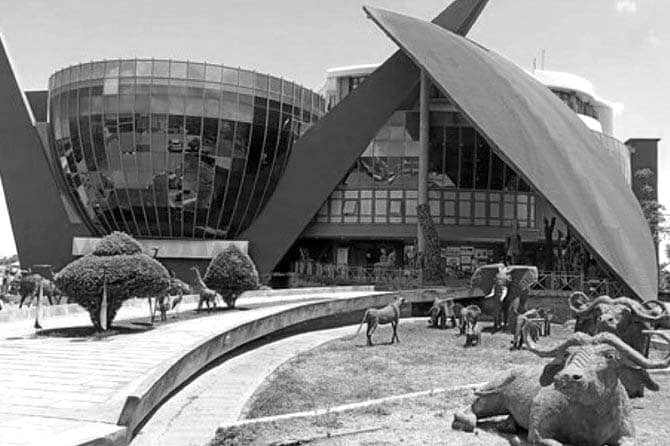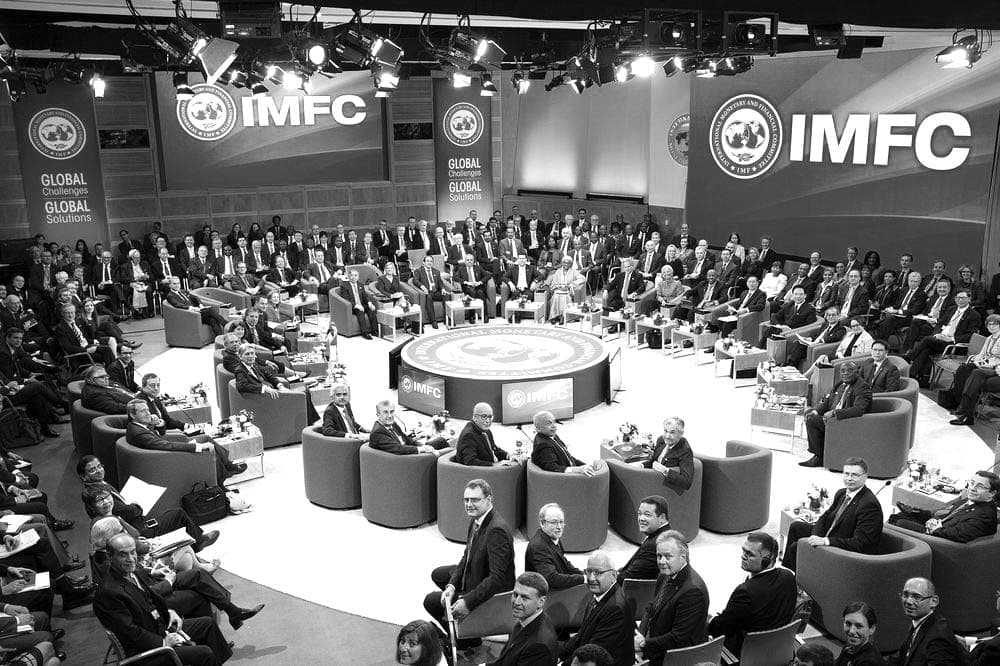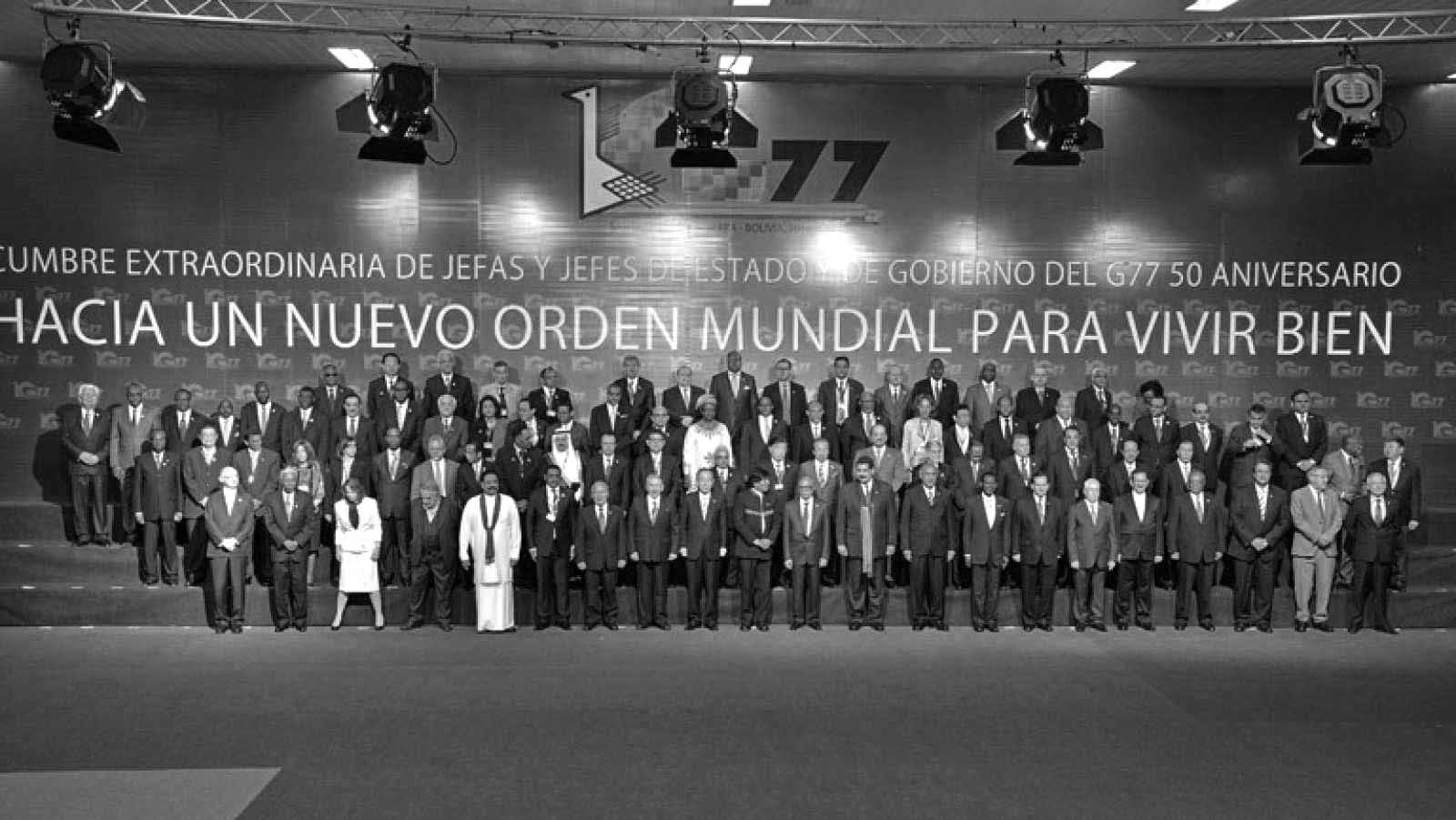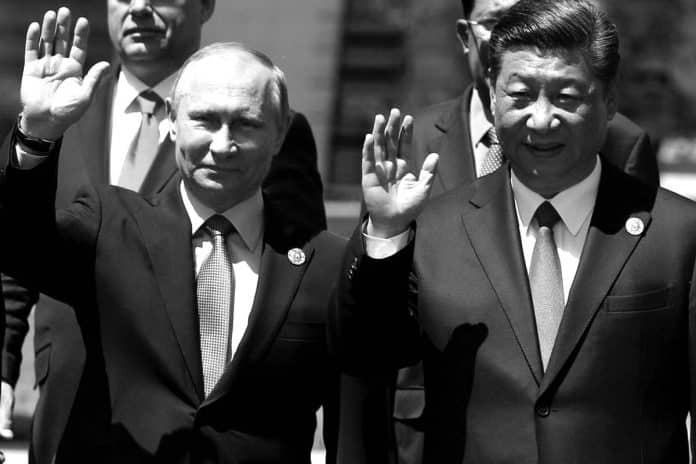Unity for a New World Order, Arusha, 1979
Speech by President Julius K. Nyerere
at the Cabinet Meeting
of Group 77
12 February 1979, Arusha, Tanzania
Your Excellencies, Ladies and Gentlemen.
It is my duty and pleasure to open this conference, and each one of you, here in Tanzania and Arusha. I feel that some of you may have noticed that your accommodation gives you a constant reminder that this meeting is taking place in a developing country. I want to assure

you that we tried very hard! I hope, however, that you will not find that your rooms or services are not satisfactory to an extent you fail to do your job properly. I also hope that you will have the opportunity to see something in Tanzania. We have a wonderful country and we would like you to enjoy your stay here as well as serve your countries and Third World countries together.
The agenda of your Conference is very long; it involves the most important things. Many professional questions are involved, in which the description and percentage may imply a distinction between the benefits or otherwise the recommendations or the position of the proposed discussion. And this information is the reality of working for the New World Order; unless given serious attention (especially by those entrusted with mediation powers) the demands of the Third World will be just words.
But there is also danger in the details. When a Third World mediator, after spending a lot of time negotiating, pushing the other side of the table from 30% to 45% he will feel a sense of accomplishment, and encourage the acceptance of his colleagues. We should be all compassionate! I am not a soldier. But I have been told that the Commander of the Army usually looks at the forward movement of his platoons in the context of success in the war. If the move can be done at no cost or can be used to harass rival forces – okay! But if it threatens his forces unnecessarily, or undermines his strategy, then he congratulates the Platform Commander and his men, and tells them to retreat.
In this Conference you will be looking at the details of past and present talks regarding the goal of achieving fundamental changes in the current International Economic Policy. I do not recommend commenting! Delegates here are better prepared than I am to gauge talks on the Joint Fund, changes in the structure of the financial institutions of the world, tariffs and other restrictions on Third World trade, and so on. All I want to do is share with you some thoughts about future activities.
Our Need for One Voice
The 77th Group was formed out of a sense of the need for the Third World to speak with one voice at UNCTAD Conference and other meetings on global economic issues. It was our fragmentation that forced us to move forward to a collective agreement, which led to more than forty nations joining the 77th Group Summit since Algiers in 1967. Regardless of our nation’s economic philosophies, we had all realized that one nation’s efforts to advance Its economy continued to hit a solid wall of power – the power of rich nations and rich international organizations.
The new colonial powers, and the old Latin American countries, had all inherited the same idea from the dominant European-American culture: work hard and you will prosper. Gradually we all realized that hard work and success were not a source and effect; something outside of ourselves always seemed to break the respected bond! The so-called neutrality of the world market turned out to be the neutral point between the the ones who exploits and those who are exploited, between the bird hunter and its victim. In our efforts to obtain livelihood resources – let alone development – – we implemented legal procedures for capital acquisition, we always seemed to end up under the invisible control of international organizations or under I.M.F. regulatory policies – or both. We did not make progress; we pretty much moved out of the frying pan and into the cold freezer! Even though we did not try to do anything but sell ordinary things abroad and buy ordinary things from abroad, we found that our purchasing power was getting smaller and smaller even though we were working harder than usual.

So we met to negotiate with industrialized countries for changes in trade and financial laws and regulations. The current system has been engineered by developed countries to achieve their goals. This is a matter of historical fact, not a testimony of integrity! The result is that a group of industrialized nations – which act as a group when dealing with outsiders – controls international trade and finance, and also controls the wealth accumulated in centuries of colonial rule, foreign policy supported by uses of force, and initial advantages in mass production techniques. Once again I am telling the truth, not measuring integrity. If values come into play – as I believe they do – they apply to the future. For us, the Third World, we now demand that the mechanisms that make the rich richer and the less fortunate poorer must be changed to keep pace with other changes in the world – the end of colonialism, technological development, and a new human understanding of human equality and dignity of human beings.
We bring these needs, as a Third World, to the integrity of the fundamentals, and to their cause. 70% of the world’s population – the Third World – collectively produces no more than 12% of the total World Product. 80% of the world’s trade and investment, 93% of its industries, and almost 100% of its research is controlled – in the words of Barbara Ward – by the wealthy industry. The income gap is widening, even between industrialized nations and the so-called Third World ‘high-income countries’. The Third World still does most of its trade with developed nations; its transport links are directly linked to the developed world; The technology it uses is the technology developed by them and for the developed world – who also control its use.
National Unity
In other words, the Third World nations did not create productive and commercial institutions and have no control over it. But we are ruled by them. It is this dictatorship that we have no control over and that each of us has rejected. And our coming together in Group 77 has the purpose of enabling us to deal with the conditions of greater equality against the Power that exists. For us it is basically a unity of the opposition. And it is a nations unity.

For it was the diversity of our nationality that brought us together, not the ideas of human brotherhood, or human equality, or love between us. The immediate reason for each nation to join Group 77 depended on the stage at which the nation experienced economic frustration due to powers outside its capabilities that are external. Whether it wanted to “be developed”, or “have industrial development”, or “eradicate poverty“, or even be able to function as an independent nation, it wanted to do so while remaining as African, Latin-American, or Asian – and within these groups, Tanzanian, Argentine or Malaysian. It was a practical experience of the fact that legal independence did not mean economic freedom that made many of us think in terms of cooperating with others who were in positions similar to ours.
I emphasize the fact that it was our movement of nationalism that forced us to be together because we have to understand ourselves in order to achieve our goals. Group 77 is not ideologically cohesive. Some of us are immensely “Scientific” Socialists, some are just Socialists, some are Capitalists, some are believers in religious leadership, and some are fascists! We do not have to be friends – some of the countries represented here are currently involved in civil war. Our National Income per head varies from about $ 100 per year to $ 2,000 per year. Some of us have minerals, some do not; Some of us are surrounded by land, and some of us are in the middle of a large ocean. Group 77 is not defined from any of those factors or economic, social, or ideological reasons – membership alone eliminates all such differences.
The immediate interests, and bargaining priorities, of the different members of the 77 group are actually very different. Therefore, there is a tendency for small groups to be formed within Group 77. We have OPEC, Highly Affected, Minor Development, New Developed Industrial Countries, Countries Surrounded by land, and so on; sometimes this classification is made by us and sometimes by others but is accepted by us for the purposes of working. This type of small Group division or 77 may be useful; it enables us to engage in in-depth dialogue with developed industrialized nations, and it also helps us to ensure that all interests within the Group or 77 are implemented in working out our overall strategy.
But this kind of small division is also very dangerous, small groups developing their own internal consensus and their sense of unity – which can be united against other smaller groups instead of them against the existing world order. When this happens it becomes difficult to use the negotiating benefits in one area to achieve success in an area where the profit is on the other side of the table. “Dividing and Controlling” is an old system of governance; developed nations are not unaware of its benefits.
The Unity in our Diversity
But our diversity lies in the context of collective and recurring experiences. What we have in common is that we are all, in relation to the developed world, dependent nations – not interdependent nations . Everyone in our economy has been developed as a secondary product and part of development resulted from industrialization of the north, and is externally directed. We are not the main controllers of our own destiny. We are ashamed to confess this; but economically we are dependent – half-colonies in other words – not an independent countries.
This is true for each of us represented here. OPEC members joined forces to set oil prices in 1973. This historic move shook the world, greatly enhanced the alliance power of oil-producing countries and encouraged other essential commodity producers. But since then OPEC has learned, and we have all learned once again, that no matter how powerful you are, a single trade union that covers only one part of all businesses cannot change the root of relationship between Employers and Employees.
Then there are the giants of the Third World – India, Indonesia and Brazil. If these three countries, representing about 900 million people, isolate themselves from other Third World countries and speak as one, they will still not be able to escape the realities of the group of developed countries – moreover they could find fewer and temporary agreements. The fact is that the unity of even the strongest for small groups within the Third World is not enough to allow its members to be full-fledged implementers, instead becoming followers of the global economic system. The Third World Union is critical to the success of fundamental changes in the current global economic plans.
However the pressure towards individuality is strong. More optimism is directed at 77 members who are deceived and flattered and promised agreement in this or that matter that is of immediate interest to them. And there are forces within every small group – from OPEC to those with limited capacity – who tend to accept those promises, special services, or special representations, and then – instead of using these as a basis for further Third World Development. – situation that leads to loss of interest in the wider struggle. These forces have not yet won in any country but it would be foolish to pretend they do not exist. For they will not just disappear like this. We all feel the coldness of recession in Europe, and in our despair there is a great temptation to look at ourselves as individuals rather than within our group as a whole.
Gentlemen: I have been saying aloud some of the things that are said in private. I have done this because the risk can only be addressed when it is acknowledged. And divisions would be a terrible obstacle to all of our expectations, and would mean throwing away a great source of power. Diversity within the Third World can be our strength rather than our weakness if we can hold on to our political decision to unite in dialogue and in action.
The Option is Not Either / Or
Sometimes we politicians talk as if the changes in the current new world order will come either through the Negotiations, or through the Conflict with rich nations. I did it myself when I spoke in developed countries. Because it is a kind of shortcut – a quick way to show that what is true within the country is also true between countries. If no change is planned in the old order then confrontation is inevitable, nationally and internationally. But we have moved on from there, talking as if the Third World had to choose strategically between bargaining and declaring economic warfare for rich countries. On that basis we have always been apologizing – to our own people and to others. As we engage in conversations we become apologetic, as if negotiating will somehow lead to surrendering or softening the goal. And if the Dialogue fails we apologize for bringing up the confrontation, as if we were unreasonable – even not making sense – and automatically inciting economic wars that we cannot win.
I don’t believe that’s the kind of options we face. We should not choose between negotiations and confrontations with the rich: there is no reason why we should apologize during negotiations, or about refusing to continue certain negotiations and opt for a direct action. Ours is a kind of Poor Traders Union. Sometimes – perhaps more often – we will discuss the different aspects of the requirements of the New World Order of the Economy and agree on the best compromises we can achieve at that time. At times, though, we may have to strike back to

show that certain conduct is no longer acceptable!
But the Trade Union is as strong as its unity. And when deciding on the acceptance or otherwise of any possible compromise we must recognize the political realities – in our situation it is 117 cases. The Third World does have a strike fund, and food strikes are not the weapon of the hungry. To request countries like Zambia and Chile to stop exporting copper to developed industrialized nations, for example, is to commit suicide. Naturally their Governments will not agree to do so, and urging them to do so would be a recipe to the disintegration of the unity of the Third World. This weakness of ours can be exaggerated. But our conditions are well known to the developed nations; Threatening confrontation as an alternative to dialogue will not intimidate them.
But it is also true that the kind of dialogue that we have been having – in UNCTAD, Paris, Geneva, New York and everywhere – has not brought about fundamental changes in the global economic system. This is not to say that they were meaningless. Currently there are groups of people, and even small nations in the industrialized world who have realized that the present evils cannot be allowed to continue, and that planned change is necessary for their own interests as well as ours. That is a beneficial movement. But the problem remains; we have not succeeded in changing the structure of power. The new world order still works against the interests of the poor.
I believe this unsatisfactory result from our efforts is because we have been making the mistake of acting as if dialogue is a matter of justice and ethics, which has nothing to do with the strength of the participants. The fact is that we need the power to negotiate, just as we need the power to start or continue a strike. So far we have been arguing as noisy and annoying counterparts. We need to negotiate from a position of accelerating power.
What Can We Do?
The basic question we need to ask ourselves now, after years of much discussion and little progress, is this. What can we do, among ourselves, to strengthen our position in future conversations?
My first answer is the one I have been saying from the beginning until now. We must maintain and strengthen our unity. We must ensure that we continue to speak with one voice and that neither of us makes a trade agreement between two or more countries other than that which undermines the overall position of negotiating for the Third World. This will not be easy as time goes on.
In all of our countries there are groups that align themselves with the most powerful and privileged in the world and who only aim to join them – regardless of the poor in their own nation and beyond. In all our countries there are those who do not tolerate international agreements or negotiations. In Governments, and as opposition, the Third World has those who have different ideologies and or radical policies of different levels. If we are to maintain the unity of the Third World we must all work together while working within non-Third World organizations for the purposes of the Third World.
I do not believe that this means that we should never protest against violence, oppression, and racism within the Third World; that will not be tolerated – and will not benefit the interests of our people. It means, however, that we have to work collaboratively with governments that we do not like and do not agree with. Aimed at completing the liberation of Third World countries from foreign rule. That is the basic meaning of the New World Order of the Economy. And unity is our tool – our only tool – that will liberate us.
But we should do more than stand together when negotiating as Group 77. We should work together; our nations need to cooperate economically. This is where the diversity of the Third World can be our strength as well.
We need to strengthen business relationships among ourselves, and we need to do it quite deliberately. Because it will not happen through arbitrary activities. Each of us has to look for opportunities to buy from other Third World nations, or to sell in other Third World countries.
We must co-operate in establishing Third World International Organizations, owned and controlled by us, in order to serve our purposes and remain free from the major International Organizations that now dominate the world economy. We need Third World Shipping companies to carry our goods, open new connections between us – and break the monopoly of their Shipping lines. We need third world international insurance; it is absurd that our insurance premiums is currently providing capital to the first world countries. We need to have research and development institutions focused on serving our needs and developing our resources. We need to plan joint ventures when our separate markets are too small for economic development for certain productive activities. And it may be that we should focus on the idea of having our Third World financial institutions instead of paying one another through London, New York, or Paris.
All of these things are possible in three situations. That there are, equally weighted, equal benefits for all participating Third World countries in each co-operative fund. That we take the responsibilities – financial or commercial – among ourselves as seriously as we do when dealing with rich and powerful nations, or even more seriously. And that we should all give preference to Third World institutions when these compete with those of the industrial world.
Creating independence of the Third World, nationally and collectively, is not a miraculous answer to our problems. It will take time – a really long time. And it will be very difficult. Certainly Tanzania will not underestimate the complexity of this mandate: East Africa is a sad example of the failure of the Third World. There have been failures for some, and there may be more in the future. Yet every successful effort in cooperation strengthens the Third World in dealing with the developed world. We must all keep trying. And we must all encourage and provide the support we can for every experiment that has been done, whether active or general, in neighborhood level, regional, or continental interactions. All we have to ask before we support, is that it is a genuine effort for Third World cooperation, and that it is designed to strengthen the independence and economy of Third World countries.
This question is on your agenda. Economic Cooperation between Developing Countries is Article 18! Yet this stance on the Agenda does not need to be taken lightly: cooperation among ourselves can be an element of discussion on almost everything if the approach is always “what can we do among ourselves, for ourselves?”. And there are alleyways in this building!
Conversation Preparation
The last point I would like to mention is not on your Agenda at all. But sometimes I am intimidated by the barriers that Third World mediators enter into important meetings – either among us or with others. We in Tanzania take these questions very seriously, but our members have very little help. They get, from Tanzanian economists who have very serious domestic responsibilities, a small text commenting on serious issues; they read articles in international journals; and they have documents that UNCTAD staff presented to us all. I believe the same situation exists for many, if not all, members of the Third World that attend UN or North / South conventions. And with this kind of support they are going to meet people with great experience, armed with all the preparation materials prepared by the highly skilled who are in their own countries and the O.E.C.D. and their computers!
Many Third World specialists work at UNCTAD, and some staff members see the need for change in the global business and financial system. But UNCTAD is, by definition, a global organization. One of the tasks of its staff is to help meetings reach an agreement. It is the work of the Third World to develop and articulate its position.
Such a lack of technical preparation can hinder our efforts to expand economic integration among us. At present there is no job for anyone to find possible areas of cooperation and present them to our overworked Ministers, and to start tracking where interests are. Once again, UNCTAD, and other UN staff are assisting; We owe them a great deal for this work. But some UN members seem to have their own feelings about UN secretariat serving the interests of one side – even if it is the weaker side – in world dialogue!
There are serious suspicions about international bureaucracy and new institutions – We are not immunity in that neither! They are often very expensive, especially when workers are paid at rates that are so-called “international standards” – which usually means higher wages anywhere! But it may be that Group 77 needs to reconsider the question of whether it needs its own economists for the job only and other professionals with professional support for policy making and mediation. I would just add that, if we decide this to be the case, then we have to pay for that professional office ourselves. The payer to the piper is the one who chooses the music to listen to.
Change is a Process
Gentlemen. As I understand it, our purpose in Group 77 is to try to make a difference in global economic planning because we feel that we are being treated unfairly, harms our interests, and in fact is contrary to the interests of global stability and development. Our goal is economic liberation, and with that goal there will be no compromise. But during the redemption process it can sometimes be necessary to reach an agreement; we are not content to be squeezed into this world we live in.
I have been arguing that in order to achieve our goals we need to maintain and even strengthen our unity in Group 77, and expand professional cooperation among us. None of what i have mentioned is new. It can be a reminder of an indisputable fact when you begin to fulfill this weighty responsibility.
There are no miraculous answers to our problems. Changing the new world order is a Process. It can be accelerated; can be directed; and can be done without interruption. But it will remain a process. The next UNCTAD conference – which you are preparing – is an event on the way. Your preparation for that should also be a preparation for future steps in the process we are trying to persuade.
Thank you. I wish you all the best in your Conference.
For more Nyerere speeches click here!


































